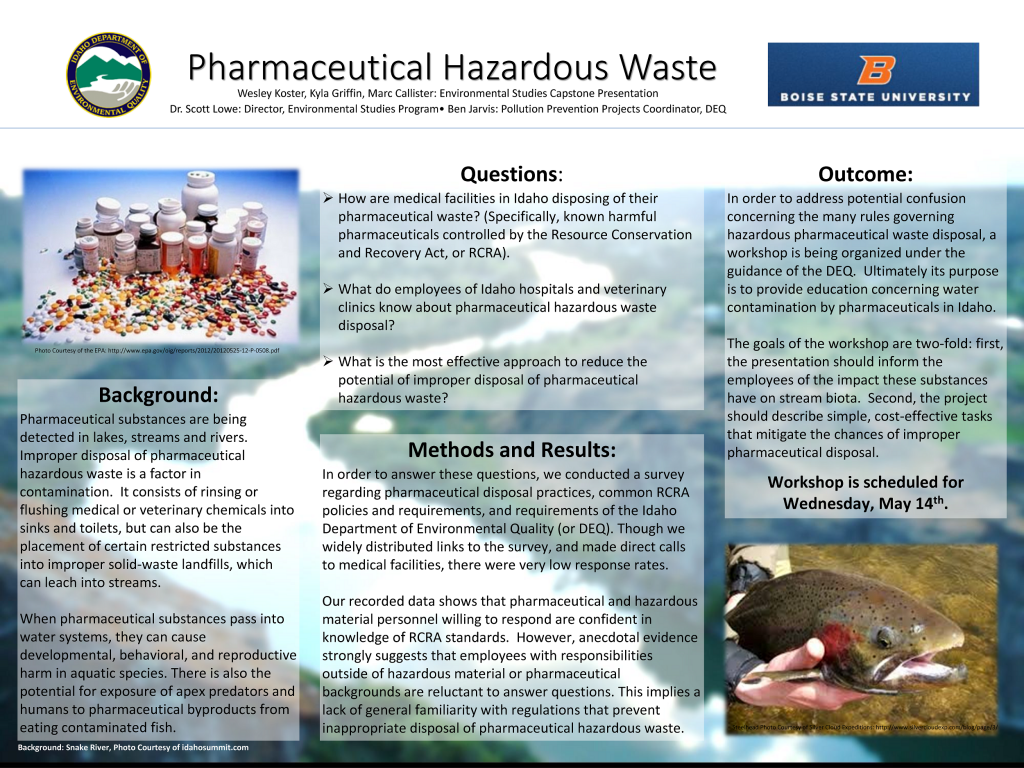Pharmaceutical Hazardous Waste

Wesley Koster, Kyla Griffin, Marc Callister: Environmental Studies Capstone Presentation
Dr. Scott Lowe: Director, Environmental Studies Program• Ben Jarvis: Pollution Prevention Projects Coordinator, DEQ
Background
Pharmaceutical substances are being detected in lakes, streams and rivers. Improper disposal of pharmaceutical hazardous waste is a factor in contamination. It consists of rinsing or flushing medical or veterinary chemicals into sinks and toilets, but can also be the placement of certain restricted substances into improper solid-waste landfills, which can leach into streams.
When pharmaceutical substances pass into water systems, they can cause developmental, behavioral, and reproductive harm in aquatic species. There is also the potential for exposure of apex predators and humans to pharmaceutical byproducts from eating contaminated fish.
Questions
- How are medical facilities in Idaho disposing of their pharmaceutical waste? (Specifically, known harmful pharmaceuticals controlled by the Resource Conservation and Recovery Act, or RCRA).
- What do employees of Idaho hospitals and veterinary clinics know about pharmaceutical hazardous waste disposal?
- What is the most effective approach to reduce the potential of improper disposal of pharmaceutical Background: hazardous waste?
Methods and Results
In order to answer these questions, we conducted a survey regarding pharmaceutical disposal practices, common RCRA policies and requirements, and requirements of the Idaho Department of Environmental Quality (or DEQ). Though we widely distributed links to the survey, and made direct calls to medical facilities, there were very low response rates.
Our recorded data shows that pharmaceutical and hazardous material personnel willing to respond are confident in knowledge of RCRA standards. However, anecdotal evidence strongly suggests that employees with responsibilities outside of hazardous material or pharmaceutical backgrounds are reluctant to answer questions. this implies a lack of general familiarity with regulations that prevent inappropriate disposal of pharmaceutical hazardous waste.
Outcome
In order to address potential confusion concerning the many rules governing hazardous pharmaceutical waste disposal, a workshop is being organized under the guidance of the DEQ. Ultimately its purpose is to provide education concerning water contamination by pharmaceuticals in Idaho.
The goals of the workshop are two-fold: first, the presentation should inform the employees of the impact these substances have on stream biota. Second, the project should describe simple, cost-effective tasks that mitigate the chances of improper pharmaceutical disposal.
Workshop is scheduled for Wednesday, May 14th.